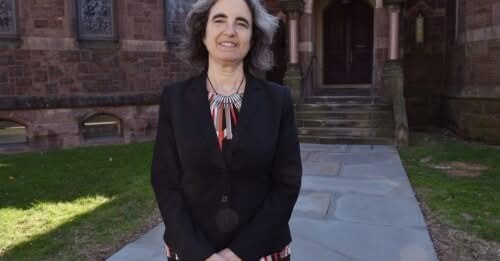The halls of Princeton University are now quieter as colleagues, students, family, and friends grapple with the shock of Alison Isenberg’s passing. The esteemed professor and scholar, known for her brilliance, passion, and generous spirit, died unexpectedly last evening. The news has sent waves of grief through the academic community and beyond.
Alison was not only a leading historian but also a mentor whose influence extended far beyond lecture halls. Her research, teaching, and public engagement shaped how many understand American urban life, social justice, and the evolving complexities of race, space, and community. The projects she led, the students she guided, and the conversations she sparked are now part of her enduring legacy.
Now her absence feels massive—empty chairs in seminars, quiet corridors, and calls unanswered. But in stories being shared, in old lectures revisited, and in ongoing scholarship, her voice still echoes.
Alison Isenberg wasn’t just a scholar — she was a catalyst. Those who knew her speak of her sharp intellect, her curiosity, and her ability to bring people together around difficult questions. She believed scholarship was not ivory tower isolation — it was something that should engage communities and transform perspectives.
She had a gift for seeing connections that others missed, for weaving together threads of history, design, race, and place. Her classes were more than lectures — they were conversations, full of energy, challenge, care. Students likened sitting in her seminars to stepping into a living lab, where ideas moved, shifted, and opened new doors.
But beyond the brilliance, there was kindness. Alison remembered names. She asked after family. She cheered quietly when mentees published their first article, helped when colleagues struggled, and spoke out for equity, access, and justice in academic life. Her loss is felt most acutely in the hearts of those she taught and supported.
The announcement of Alison’s passing came unexpectedly — leaving many stunned and searching for meaning. Emails flooded inboxes. Social media posts emerged, filled with sorrow, disbelief, and gratitude. Pictures of her smiling at conferences, lecturing in Dickinson Hall, walking campus paths — all now relics, bittersweet reminders of her presence.
In department offices, memorial books are being opened. Candles flicker in faculty lounges. Students gather to share stories — the times she corrected a detail, inspired a research turn, or offered advice over coffee. The grief is collective, but also deeply personal. For each person, Alison’s absence feels like a small cutting away: a missing thread, a quiet absence, a halting of momentum.
Even as people mourn, they also celebrate. They speak of her influence on urban history, on public humanities, on architecture and community. Her intellectual reach, wide as it was, is complemented by the warmth she brought into relationships.
Though Alison Isenberg is gone, her legacy is far from finished. Every student inspired, every lecture published, every community conversation she helped ignite — these are living parts of her. Her vision, her fearlessness, her compassion — they no longer belong just to her lifetime, but to generations she touched and will continue to touch.
To her family and friends, this moment is heartbreak. Yet in that heartbreak lies a profound gratitude: for the time she gave, the minds she opened, and the love she extended. And to Princeton, to the field of history, to the countless communities she worked with — her memory will be a guiding light.

Leave a Reply